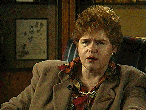Professor Novick says that Holocaust eye-witness testimonies are in fact not a very useful historical source | |
List Price: $27.00 • Our Price: $18.90 at a glance You Save: $8.10 (30%) | |
IT HAS been argued -- less now than formerly -- that once the survivor witnesses are gone, Holocaust deniers will flourish in the absence of those whose memories refute them. More generally, it is held that survivors's memories are an indispensable historical source that must be preserved, and elaborate projects are under way to collect them. In fact, those memories are not a very useful historical source. Or, rather, some may be, but we don't know which ones. A few years ago the director of Yad Vashem's archive told a reporter that most of the twenty thousand testimonies it had collected were unreliable: "Many were never in the places where they claim to have witnessed atrocities, while others relied on secondhard information given them by friends or passing strangers." Primo Levi, one of the most renowned of survivor witnesses, has described this phenomenon: "The greater part of the witnesses ... have ever more blurred and stylized memories, often, unbeknownst to them, influenced by information gained from later readings or the stories of others ... A memory evoked too often, and expressed in the form of a story, tends to become fixed in a stereotype ... crystallized, perfected, adorned, installing itself in the place of the raw memory and growing at its expense."
Through various initiatives, of which the largest is Steven Spielberg's $100 million project of collecting videotaped testimonies, survivors' evocative accounts will outlive them. The uses to which they'll be put in the future, and how much of an audience they'll command, we can't know. [**]
| |

|
 The
Holocaust in American Life
The
Holocaust in American Life To
say that survivors' memories, or some unknown portion of
them, are not a reliable historical source is not to say
they haven't been, or won't continue to be, important in
evoking the Holocaust experience. [....] (When
evidence emerged that one Holocaust memoir, highly praised
for its authenticity might have been completely invented,
[*]
To
say that survivors' memories, or some unknown portion of
them, are not a reliable historical source is not to say
they haven't been, or won't continue to be, important in
evoking the Holocaust experience. [....] (When
evidence emerged that one Holocaust memoir, highly praised
for its authenticity might have been completely invented,
[*]